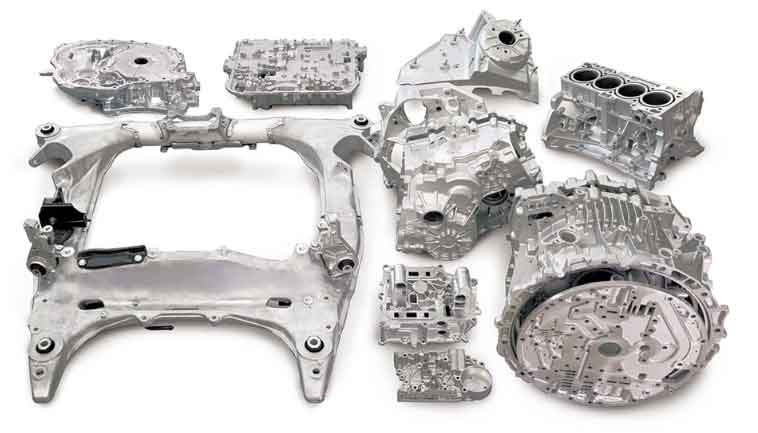
Die casting offers several sustainable manufacturing solutions that contribute to a greener future. Here are some ways in which die casting promotes sustainability:
- Material Efficiency: Die casting is known for its high material efficiency. The process allows for precise control over the amount of molten metal injected into the mold cavity, minimizing material waste. Moreover, the ability to reuse the molds multiple times further reduces material consumption.
- Recyclability: Die casting alloys, such as aluminum, zinc, and magnesium, are highly recyclable. The scrap generated during the die casting process can be easily collected, recycled, and reused to produce new components. Recycling reduces the need for primary metal extraction, conserves natural resources, and minimizes energy consumption and carbon emissions associated with primary metal production.
- Energy Efficiency: Die casting is an energy-efficient manufacturing process. The use of high-pressure injection systems and rapid solidification reduces the overall energy consumption per unit of produced component compared to other manufacturing methods. Additionally, advancements in die casting technology, such as improved thermal management systems and process optimization, further enhance energy efficiency.
- Emission Reduction: Die casting produces fewer emissions compared to other metal forming processes. The use of advanced melting and furnace technologies, along with optimized process parameters, minimizes greenhouse gas emissions and air pollutants. Additionally, the use of recycled materials in die casting reduces the carbon footprint associated with material production.
- Extended Product Lifespan: Die-cast components are known for their durability and long lifespan. They can withstand harsh operating conditions and maintain their structural integrity over time. The longevity of die-cast parts reduces the need for frequent replacements, leading to resource conservation and waste reduction.
- Design Optimization: Die casting enables design optimization to create lightweight components without compromising strength and performance. Lightweighting not only reduces material consumption but also contributes to fuel efficiency in applications such as automotive and aerospace. The reduced weight leads to lower energy consumption during operation, resulting in lower greenhouse gas emissions.
- Waste Reduction: Die casting minimizes waste generation through careful material control, efficient production processes, and the ability to recycle scrap materials. Additionally, the elimination of secondary operations like machining or assembly reduces waste associated with those processes.
- Environmental Compliance: Die casting facilities are subject to stringent environmental regulations. Compliance with these regulations ensures that the casting process is carried out in an environmentally responsible manner, including proper waste management, emissions control, and adherence to sustainable practices.
By adopting die casting as a manufacturing solution, industries can contribute to a greener future by reducing material waste, conserving energy, minimizing emissions, and promoting sustainable practices throughout the product lifecycle. Additionally, the recyclability and extended lifespan of die-cast components further enhance their environmental sustainability.
